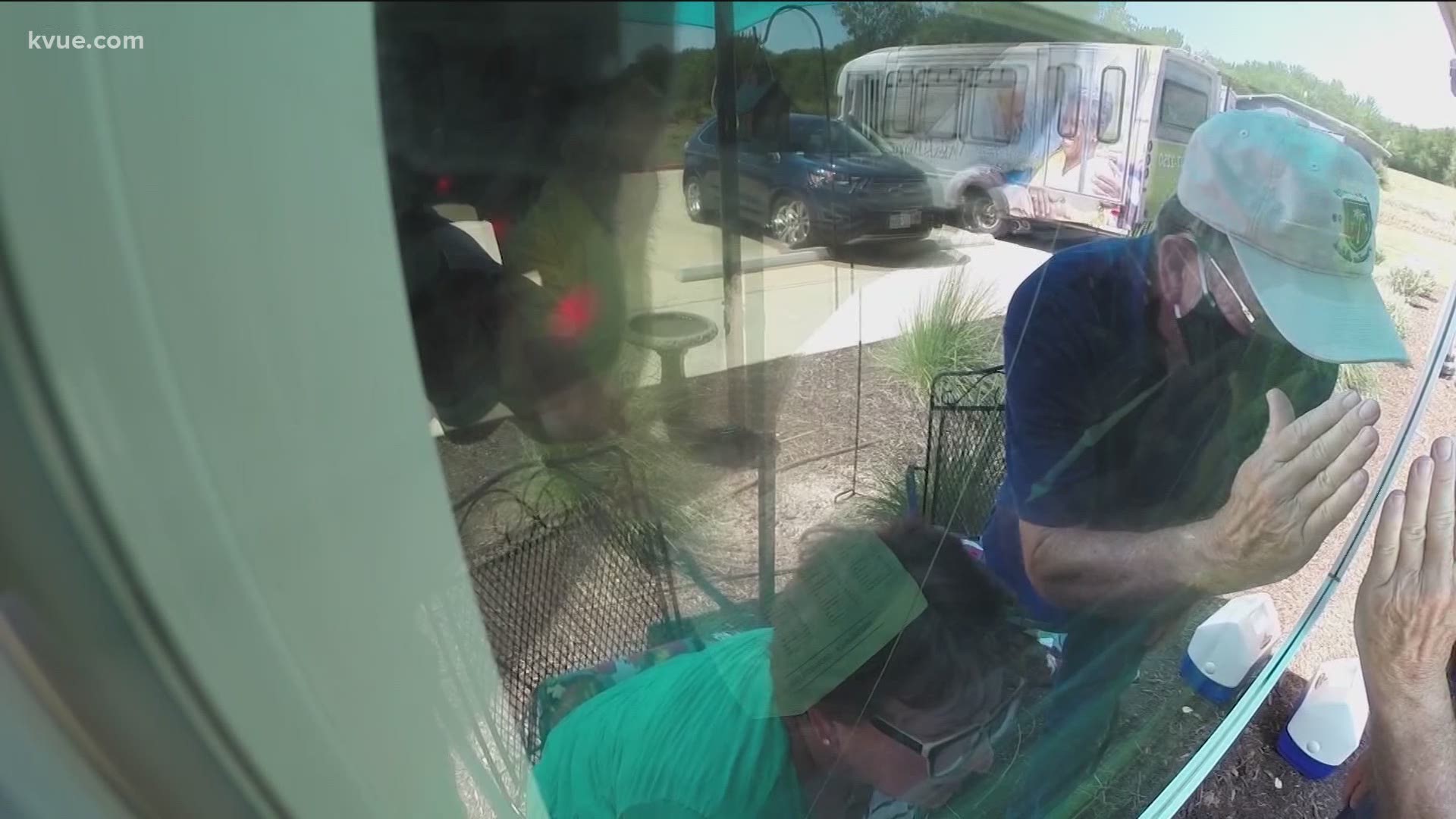WIMBERLEY, Texas — Texas relaxed some of the rules allowing families to visit with their loved ones at nursing homes and assisted living centers, but those visits are mostly outside, through a window or on a computer screen. Some families say it doesn't go far enough.
Kim Reed promised her dad, Carl, she'd visit him daily when they decided to put him in an assisted living center. Luckily she's been able to keep her promise. A daily dose of love at a distance.
“It's been a rough year for him,” said Reed.
Carl lost his wife a year ago, so these screen-side visits mean so much.
“The fact that I haven't been able to hug him in months, that just makes me crazy. So I know I'm going to lose him, and Daddy's ready to go be with mom. And we believe that's OK, but I never dreamed that he wouldn't have physical touch. We wouldn't be at his bedside. We wouldn't be holding him. We wouldn't do the things that we were able to do for my mom, for him,” she said.
RELATED: Defenders: Is it enough? Visitation policy changes may provide some relief to seniors in isolation
The cruelty of COVID-19 is playing out at nursing homes and assisted living centers across the country. Families unable to touch, hug, love on their loved ones in their final days.
“It's pretty hard to not be able to hug her and even my son in law,” said Carl. “How many people can say that? That they miss hugging their son-in-law?”
“Daddy said it a while ago: When you're at his age, you've traveled, you've done the things you want to do. There isn't a birthday gift Daddy wants. There isn't a shirt, isn't a gadget. It's family. That is the most important thing in the last years of your life. You just want to be with your family,” said Reed.
Texas is one of 32 states to loosen the rules, from being on total lockdown to allowing window visits or in-person visits through Plexiglass at places with no COVID-19 cases.
Reed knows her dad is one of the lucky ones. He has a window to the outside drive. So many of his friends inside do not. They have windows into a courtyard that requires access inside the building.
“We've put them in an impossible situation where they're completely isolated and they don't have a loved one that can hug them and say it's going to be OK, we'll get through it together. They're pretty much been told, 'You're going to have to get through it alone,'” said Reed.
Designate family essential workers
So Reed and others are pushing to allow family members to be designated essential workers. It's something other states like Minnesota have already done.
“It's not the employee’s fault what's happening here. They can't check everything. But I know my dad. If I see something that's wrong, I'm going to notice it a lot faster,” said Reed.
The daily visits do them good but remind them of all that they're missing.
“I think we ought to be able to hug each other at least once a day,” said Carl.
As much as they'd like to take him home, Carl needs care. And they worry if he ever needs to come back, he could end up in a room without a window. So they soak up every moment and dream of the days when love knows no boundaries.
“I see her every night as she drives away and know she'll be back tomorrow, but it's really not the same if you can't hug them and touch them,” said Carl.
“It's hard,” said Reed.
Reed and other families said they understand protecting their loved ones from COVID-19. They would be willing to wear protective gear, take a test, anything to be able to touch and hug their loved ones. They have started a petition and garnered nearly 15,000 signatures as of Thursday.
PEOPLE ARE ALSO READING:

